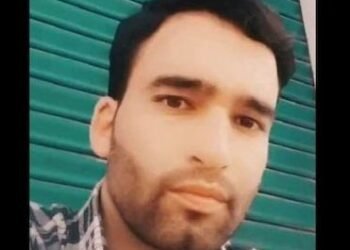BY Navin Upadhyay
April 24, 2025: The terror attack in Pahalgam, Jammu and Kashmir, on April 22, 2025, which killed 26 people, mostly tourists, in the Baisaran meadow, was a calculated attempt to sow communal discord. Orchestrated by The Resistance Front (TRF), an offshoot of Lashkar-e-Taiba, the attack targeted non-Muslims, with reports suggesting assailants checked identities to spare Muslims. Yet, in the face of this tragedy, Muslims in Kashmir and beyond have responded with extraordinary acts of heroism, solidarity, and compassion, dismantling efforts to link their community with terrorism. From life-saving rescues to heartfelt gestures of support, these stories are reshaping the narrative.
A Hero’s Sacrifice: Syed Adil Hussain Shah
Syed Adil Hussain Shah, a 29-year-old Muslim pony operator from Hapatnar village, became a symbol of courage when he confronted the attackers to protect Hindu tourists. Witnesses say Shah attempted to wrestle a rifle from a terrorist, only to be fatally shot thrice—twice in the neck and once in the shoulder. His sacrifice, the only local casualty, has been hailed as an embodiment of Kashmiriyat, the region’s ethos of communal harmony. Jammu and Kashmir Chief Minister Omar Abdullah, speaking at Shah’s funeral, said, “Adil’s bravery shows the true spirit of Kashmir.” Social media posts on X have amplified his story, with users calling him a “hero who gave everything to save others.”
Local Kashmiris are offering free meals & accommodation to tourists; this is our culture, this is Kashmiriyat. What happened in Pahalgam has bled us all. We were all happy with the tourism flow. The enemies of peace ruined everything. They are not well-wishers of Kashmir or… pic.twitter.com/fVNAz5GQaK
— Salman Nizami (@SalmanNizami_) April 23, 2025
ALSO READ: Cry for Revenge Resounds Amid Outrage Over Pahalgam Terror Attack
Viral Image of Humanity: A Muslim Rescuer
A powerful image circulating on X captures a Muslim local carrying a wounded Hindu tourist on his back, rushing him down the hilly terrain of Baisaran to safety. The bloodied tourist, one of 11 injured evacuees aided by local pony handlers, owes his life to this unnamed rescuer. Shared widely with captions like “This is Kashmir’s heart,” the photo has become a beacon of hope, countering divisive narratives. Posts on X emphasize that Kashmiri Muslims were among the first to assist, carrying injured tourists to hospitals despite the chaos.
Shelter in Crisis: A Muslim Family’s Hospitality
In Pahalgam, a Muslim driver named Aadil opened his home to stranded Hindu tourists after the attack triggered a lockdown. A viral video on X shows Aadil’s family providing food and shelter to a group of tourists from Pune, with Aadil’s wife cooking meals and his children offering comfort. One tourist, speaking in the video, says, “Adilbhai treated us like family when we were scared and alone.” The family’s hospitality, shared by users like @PriaINC, has been praised as a testament to Hindu-Muslim unity, with posts noting, “When Hindus were in trouble, Muslims rushed to help.”
In a remarkable act of humanity, a Muslim driver from Kashmir sheltered a group of stranded tourists in his own home during a tense situation. The driver not only provided them with food and safety but also ensured their well-being until further help could arrive.#KashmirNews… pic.twitter.com/QP7KsXIjlz
— Pune Mirror (@ThePuneMirror) April 23, 2025
Offering Sustenance: Muslims Aid Stranded Tourists on Srinagar-Jammu Highway
A specific and heartwarming act of compassion unfolded on the Srinagar-Jammu National Highway (NH-44) near Qazigund, Anantnag district, on April 23, 2025. Following the Pahalgam attack, landslides and security measures led to the highway’s closure, stranding hundreds of tourists in their vehicles. A group of Muslim locals from Qazigund, led by Mohammad Yaseen Bhat, a shopkeeper, distributed water bottles and snacks, including biscuits and packaged juice, to Hindu tourists stuck in a convoy of buses and cars.
ALSO READ: How Terrain and Lack of Security Turned Tourists into ‘Sitting Ducks’
A video circulating on X shows Bhat and others handing out supplies, with one tourist saying, “We were hungry and thirsty for hours, and these brothers came to our rescue.” The footage, shared by @kashmiroutlook1 , captures a woman tourist accepting water with gratitude, saying, “This is what humanity looks like.” Bhat later told local media, “These are our guests. We couldn’t let them suffer.” This act, reported by SabrangIndia, underscores the community’s commitment to supporting stranded visitors.
आतंकी हमले में घायल व्यक्ति को अपनी जान जोखिम में डालकर बचाता एक कश्मीरी
लेकिन नफरती पूरे कश्मीरियों को बदनाम करने में लगे है pic.twitter.com/Lgzin0tHlO
— Surya Samajwadi (@surya_samajwadi) April 23, 2025
Massive Protests Against Terrorism
The Kashmir Valley observed a complete shutdown on April 23, 2025, as Muslims joined traders, shopkeepers, and hoteliers in protests condemning the attack. In Pahalgam, protesters raised slogans like “Hindustan Zindabad” and offered free accommodation to stranded tourists. In Srinagar, candlelight vigils and marches, reported by Hindustan Times, saw participants carrying placards reading, “Terrorism has no religion.” Prominent clerics issued fatwas against killing civilians, emphasizing Islam’s teachings of peace. A trader told NDTV, “This attack shames us. We will protect our guests and fight terrorism alongside the Army.”
Confronting Media Bias: Srinagar’s Protest
In Srinagar, Muslim protesters confronted a TV reporter accused of muting her camera when they spoke of “peace” and unity. A viral video on X shows the crowd chanting, “We stand for peace, not division!” as they criticized media outlets for selectively amplifying communal angles. The confrontation, trending with hashtags like #KashmirStandsTogether, sparked online debates about responsible journalism, with X users demanding coverage of Muslim heroism rather than divisive tropes.
Nationwide Solidarity
Muslim organizations across India echoed Kashmir’s condemnation. The All India Muslim Personal Law Board (AIMPLB) paused its protests against the Waqf law for three days, issuing a statement: “This attack is against our shared humanity.” In Bengaluru, Jama Masjid Imam Maulana Maqsood Imran Rashadi condemned the attack, saying, “Islam forbids such acts. We demand public punishment for these terrorists.” Candlelight vigils in Delhi, Mumbai, and Hyderabad saw interfaith mourning, with X posts highlighting unity.
The Pahalgam attack was a tragedy meant to divide, but the Muslim community’s actions have forged a narrative of resilience and compassion. As Kashmir and India mourn, these stories of humanity prove that solidarity can overcome hate.















